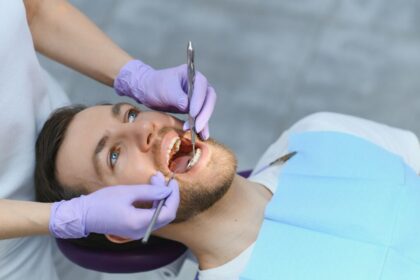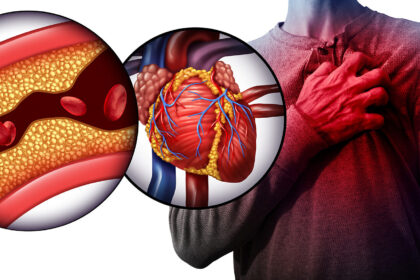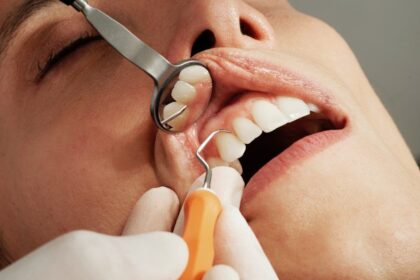Reproductive health is a vital part of overall well-being for women at every stage of life — from puberty to menopause and beyond. It encompasses not just the ability to conceive, but also menstrual health, hormonal balance, disease prevention, and mental wellness.
In this comprehensive guide, we’ll explore everything you need to know about female reproductive health across all age groups, including preventive care, common conditions, and tips for maintaining long-term reproductive wellness.
What Is Reproductive Health in Women?
Reproductive health refers to the healthy functioning of reproductive organs and systems, and the ability to make informed choices about reproduction. It involves:
- Regular menstrual cycles
- Fertility and conception
- Pregnancy and childbirth
- Hormonal regulation
- Protection from infections or diseases
- Mental and emotional balance related to reproductive life stages
Reproductive Health by Life Stage
1. Adolescence (Age 10–19)
During puberty, girls experience major changes including:
- Start of menstruation (menarche)
- Breast development
- Hormonal shifts
Focus areas:
- Menstrual education
- Hygiene practices
- HPV vaccination
- Awareness about physical changes
2. Reproductive Years (Age 20–40)
These are the most fertile years and often include sexual activity, family planning, and pregnancy.
Important aspects:
- Regular gynecological checkups
- Contraceptive guidance
- STI prevention
- Fertility education
- Preconception and prenatal care
3. Perimenopause and Menopause (Age 40+)
Women face hormonal fluctuations leading to irregular cycles, hot flashes, and reduced fertility. Eventually, menstruation stops completely (menopause).
Key care needs:
- Hormonal balance (HRT if needed)
- Bone health (calcium & vitamin D)
- Heart health monitoring
- Mental health support
Common Reproductive Health Issues in Women
| Condition | Description |
|---|---|
| PCOS | Hormonal disorder causing irregular periods, acne, and infertility |
| Endometriosis | Uterine tissue grows outside the uterus, causing pain and bleeding |
| Fibroids | Non-cancerous growths in the uterus |
| Pelvic Inflammatory Disease (PID) | Infection of reproductive organs caused by STIs |
| Menstrual Disorders | Irregular, heavy, or painful periods |
| Infertility | Inability to conceive after 12 months of unprotected sex |
Maintaining Reproductive Health: Best Practices
1. Routine Checkups
- Annual pelvic exams and Pap smears
- Breast exams and mammograms
- Ultrasounds if necessary
2. Menstrual Health Monitoring
- Keep track of cycle length, flow, and symptoms
- Seek help if periods are very heavy, irregular, or painful
3. Safe Sex Practices
- Use condoms and contraceptives to prevent STIs and unplanned pregnancies
- Get regular STI testing, especially with multiple partners
4. Hormonal Balance
- Address symptoms like mood swings, fatigue, and weight gain
- Blood tests can check estrogen, progesterone, thyroid levels
5. Nutrition and Lifestyle
- Eat a balanced diet rich in iron, folate, zinc, and healthy fats
- Maintain a healthy weight
- Avoid smoking and limit alcohol
Fertility and Family Planning
Whether you’re trying to conceive or avoid pregnancy, understanding your fertility is crucial.
Natural Fertility Signs
- Regular cycles, ovulation tracking (BBT, LH tests)
- Cervical mucus observation
Contraceptive Options
| Type | Examples | Effectiveness |
|---|---|---|
| Barrier Methods | Condoms, diaphragms | Moderate |
| Hormonal Methods | Pills, patches, injections | High |
| Intrauterine Devices | Copper or hormonal IUDs | Very high |
| Permanent Methods | Tubal ligation | Permanent |
Reproductive Health and Mental Well-Being
Women experience emotional and psychological changes tied to hormones, fertility, and life events like childbirth or menopause.
- PMDD, anxiety, and depression are often linked to hormonal shifts
- Postpartum depression needs clinical attention
- Hormone therapy, counseling, and lifestyle changes can help
When to See a Gynecologist
See your doctor if you notice:
- Missed or irregular periods
- Severe menstrual pain
- Unusual discharge or odor
- Pelvic pain
- Signs of STI (burning, sores, rashes)
- Difficulty conceiving
Conclusion
Reproductive health is a lifelong journey that requires awareness, care, and routine checkups. Whether you’re managing your first period, planning a family, or entering menopause — taking charge of your reproductive health empowers you to live fully and confidently. Early intervention, preventive care, and healthy choices can lead to a balanced, healthy reproductive life.
Frequently Asked Questions (FAQs)
1. What age should a girl see a gynecologist for the first time?
The first visit should be around 13–15 years old, especially if menstruation has started.
2. Can irregular periods affect fertility?
Yes. Irregular periods often indicate hormonal imbalances or ovulation issues, which can impact fertility.
3. What is the best birth control method?
It depends on your needs. IUDs and hormonal pills are very effective, but consult your doctor to choose what’s best for you.
4. Are vaginal infections common?
Yes, many women experience infections like yeast infections or bacterial vaginosis. They are treatable and manageable.
5. Is menopause the end of reproductive health care?
No. Post-menopause health is just as important — you still need checkups for breast health, bone density, and more.
6. What foods are best for reproductive health?
Foods rich in iron, folate, omega-3s, vitamin D, and antioxidants are ideal — such as leafy greens, nuts, eggs, and fish.
7. How often should I get a Pap smear?
Generally every 3 years, or as recommended by your doctor based on your age and risk factors.
8. Can stress affect my menstrual cycle?
Yes, chronic stress can disrupt hormonal balance and lead to irregular or missed periods.









